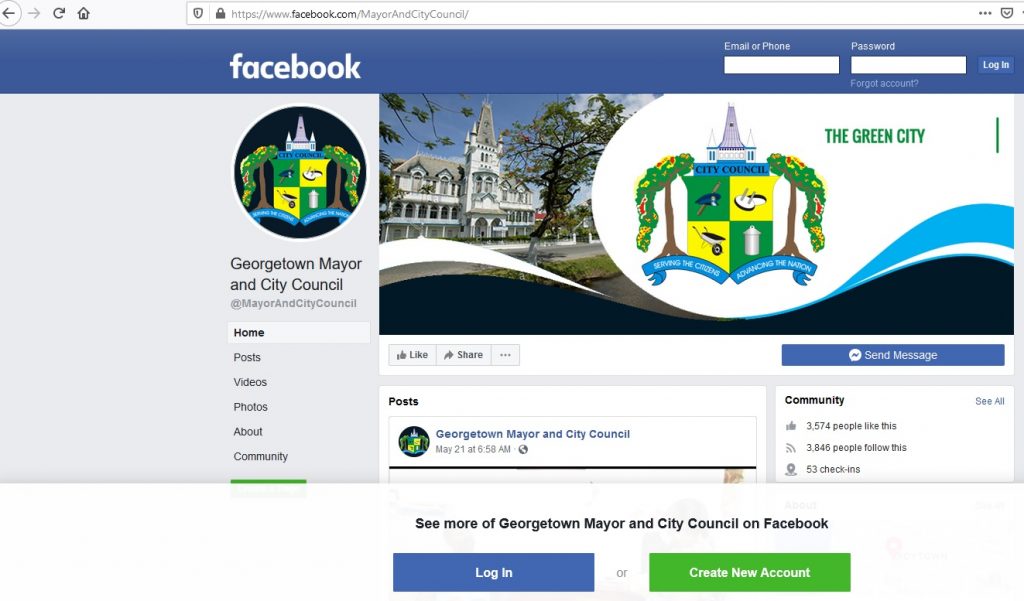In the current information age, the Internet provides an opportunity for local governments units to quickly and efficiently share information and deliver certain services to members of the public. In the US and Canada, the vast majority of local government units use their own business websites as the primary means for sharing information and delivering certain services.
In many developing countries, local government units use Facebook as the primary means for sharing information with the public.
The use of Facebook has many advantages including ready access to potentially large number of viewers. It also enables local government units to avoid the costs associated with acquisition of servers and web site management. These costs are all taken care of by Facebook. All organizations need to do is create business accounts and start adding content.
Despite the benefits of using Facebook, it is apparent that these pages are limited to certain types of business communication. For example, they are great for making public announcements, reporting news, distributing reports, etc. However, if a local government wishes to interact with the public in ways that require secure transfer of personal data or money, then Facebook pages cannot be used. In such a situation, it is better for the local government unit to maintain its own business website and use it to communicate with the public.
Using a business website under the complete control of a local government has many benefits. For example, confidential forms can be filled out and submitted to the organization’s servers without the involvement of third-party entities. Online payments for services can be made directly to the local government unit. Interactive web maps can be hosted and organizations have complete control over their content, including branding. In reality, local government units should maintain both their Facebook pages as well as a business website.
My investigation of local government units in Guyana revealed that these organizations generally do not maintain their own business websites. Rather, they use Facebook as the primary means to communicate with the public via the Internet. As an example, the City of Georgetown, Guyana’s capital and only city, does not maintain its own website. Instead, it relies on the Facebook page shown below to share information via the web.
Other towns such as Linden, New Amsterdam, Lethem, etc have Facebook pages, but not business websites. At one time, the Town of Bartica had a professional website (https://bartica.gov.gy/). However, this website no longer loads successfully, when accessed.
In this blog, I propose that local government units in Guyana seriously contemplate establishing their own business websites to better serve their communities. Such websites can be used to distribute forms of various kinds, collect rates and taxes, post announcements, provide interactive maps, and a range of other products to citizens.
An easy way for municipalities, NDCs and Amerindian Villages to get started with building their own websites is to use WordPress local government templates, which can be bought for less than $US100. Some local government WordPress templates are also available for free. The list below contains links to a few templates:
Word press templates only require basic IT skills to configure and maintain. Domain names can be purchased for a small annual fee. Small annual fees are also required for hosting the websites. Hosting can be done by companies located either within or outside of Guyana.
Hosting a website does require additional resources, however, the benefits are great. With these sites, local government units stand to better establish a more authoritative web presence as well as providing a better sets of services to the public.

